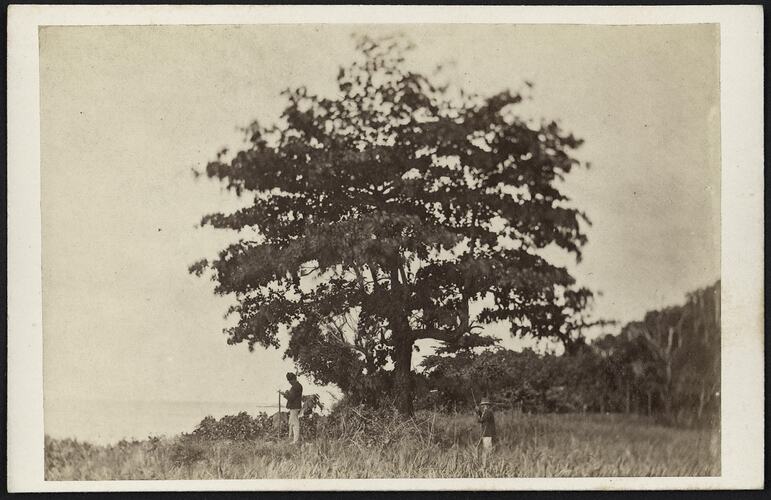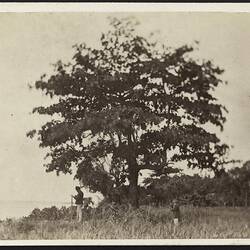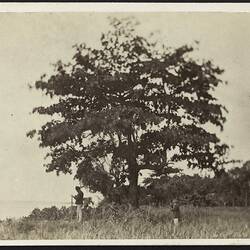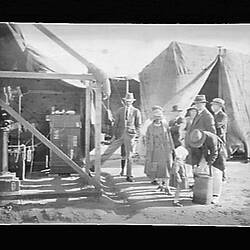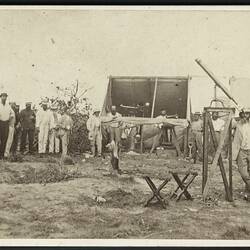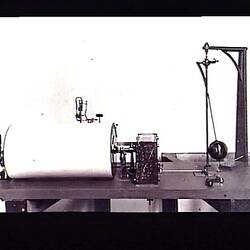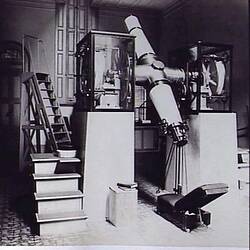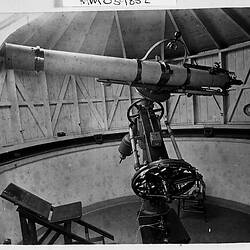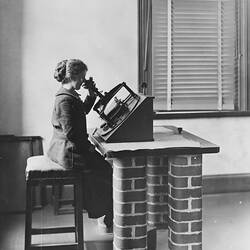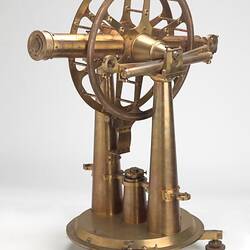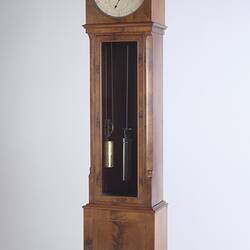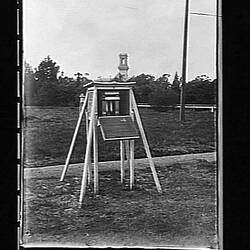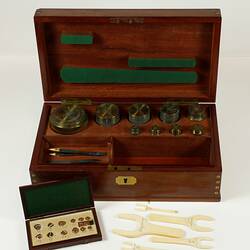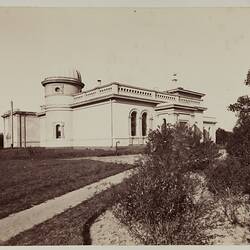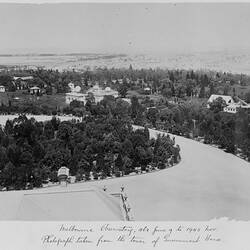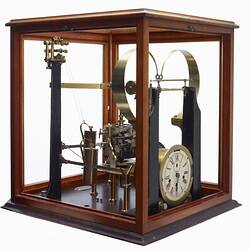Summary
Digital image from a set of 10 photographs of the solar eclipse expedition to Cape York, Queensland, December 1871. Photographs taken by Carl (Charles) Walter, expedition photographer and curator of economic botany in the Industrial and Technological Museum, Melbourne.
Description of Content
Two men standing on a foreshore under a large tree. The men appear to be setting up long poles into vertical positions. Long grass is visible in the foreground. There is a stand of trees in the background.
Physical Description
Digital image scanned from an original black and white photograph.
Significance
The Royal Society of Victoria organised an expedition to Cape York, northern Queensland, to view the solar eclipse of 12 December 1871. The colonial governments of Victoria, New South Wales and South Australia contributed funds to the expedition. The expedition party sailed from Melbourne on 22 November, stopped in Sydney to pick up further members of the party, and arrived at Cape Sidmouth, 176 miles south of Cape York, on 6 December. The party consisted of an observing party of 14, with 16 additional passengers. They chose an island known as No 6 on the Claremont Group as the observing station.
Robert Ellery led the group from Melbourne Observatory, which also included Observatory staff E. J. White, C. E. Moerlin and E. F. MacGeorge. Observatory telescopes, spectroscopic and telegraphic equipment were prepared for the expedition, and further equipment was sent by the Eclipse Committee of the British Association.
The day of the eclipse was unfortunately overcast and raining, and the party could see little of the eclipse. Other members of the party were able to make magnetic and meteorological observations, while botanical and natural history specimens were also collected. Edward White reported in his diary that the observers and equipment were ready for the eclipse; but the 'weather cloudy with heavy rain and thunder and lightning'. 'During totality a ring of light surrounding the Sun was just visible through the clouds, the birds went to roost, but the darkness was not very great, but peculiar, ordinary print could be read with great ease, and the vessel, half a mile off, was distinctly visible, with all the rigging &c, rain continued to pour down till 5 o'clock and no more was seen of the eclipse; thus all our trouble and expense had been for nothing, the greatest disappointment was visible in every face. Soon after the end of totality the packing of the instruments &c commenced, and everything was aboard by 5.30 PM. At dinner toasts were drunk and speeches made, so that we made ourselves as jolly as possible under the circumstances.'
References:
Diary of Edward J. White, 1850-1913, State Library of Victoria, MS 13122.
Robert Ellery, Presidential Address, 8 July 1872, Transactions and Proceedings of the Royal Society of Victoria, v 10, 1870-73.
More Information
-
Collection Names
-
Collecting Areas
-
Acquisition Information
Donation from Karen White, 17 Feb 2009
-
Place & Date Depicted
-
Photographer
-
Organiser of Expedition
Royal Society of Victoria (RSV), 9 Victoria Street, East Melbourne, Greater Melbourne, Victoria, Australia, 1871
-
Organiser of Expedition
Melbourne Observatory, Birdwood Avenue, South Yarra, Greater Melbourne, Victoria, Australia, 1871
-
Format
Digital file, Black & White
-
Classification
-
Category
-
Discipline
-
Type of item
-
References
Diary of Edward J. White, 1850-1913, State Library of Victoria, MS 13122. Robert Ellery, Presidential Address, 8 July 1872, Transactions and Proceedings of the Royal Society of Victoria, v 10, 1870-73.
-
Keywords
